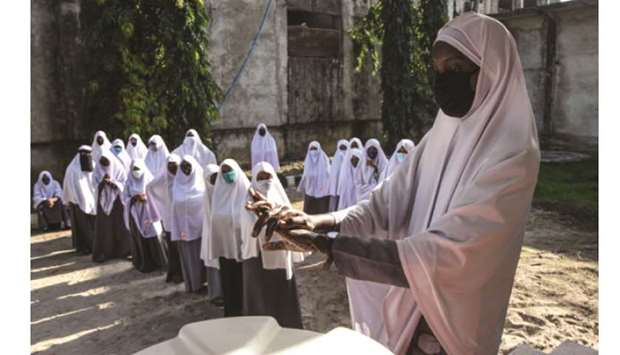Nigeria will relax coronavirus restrictions on places of worship from today, the chairman of the presidential task force for Covid-19 said.
Nigeria, Africa’s most populous country where Christianity and Islam are widely practised, has recorded 10,162 confirmed cases and 287 deaths.
Boss Mustapha, the country’s most senior civil servant, also said a lockdown in the northern city of Kano would be eased, one of a number of changes over four weeks from today.
“Nigeria has not reached the peak of confirmed cases,” Mustapha told reporters.
Another official said the aviation industry had been asked to prepare for the possible resumption of domestic flights from June 21.
He added that a national curfew would be shortened to 10pm-4am from today, from the current 8pm-6am order.
Nigeria’s financial sector will also be able to resume normal working hours, said Sani Aliyu, the national co-ordinator of the task force.
Cameroon’s schools and universities reopened yesterday after the government was criticised over weak measures to combat the spread of coronavirus in one of the worst-affected countries in sub-Saharan Africa.
The government suspended classes in mid-March for universities and schools at all grade levels, both public and private.
Cameroon was the first central African country to register a case of the virus.
Meanwhile, the European Union said yesterday it was giving Uganda 178mn euros ($198mn) in credit and grants to fund its coronavirus response, including extending credit to small businesses hit by the economic crisis induced by the outbreak.
In Pretoria, South Africa’s education minister yesterday apologised for a week-long delay in reopening schools owing to a lack of “readiness”.
Thousands of grade seven and grade 12 students had been preparing to attend the first classes in the country after two and a half months of home-schooling to limit the spread of coronavirus.
Universities in Tanzania reopened yesterday, despite a lack of clarity on the spread of coronavirus after the government decided to stop updating figures in April. As students entered dozens of campuses across Tanzania for the first time since mid-March, there were only cursory efforts to impose measures preventing the spread of Covid-19.

A student at Al Haramain secondary school washes her hands as students attend their first day at the reopened school in Dar es Salaam, Tanzania.
